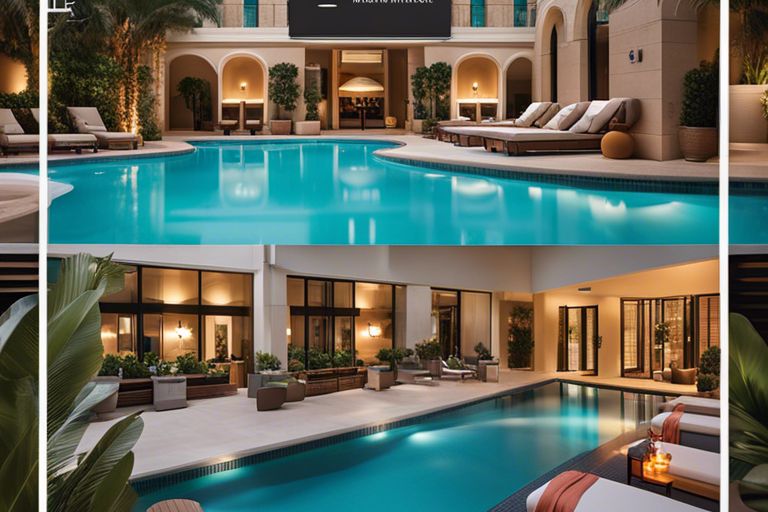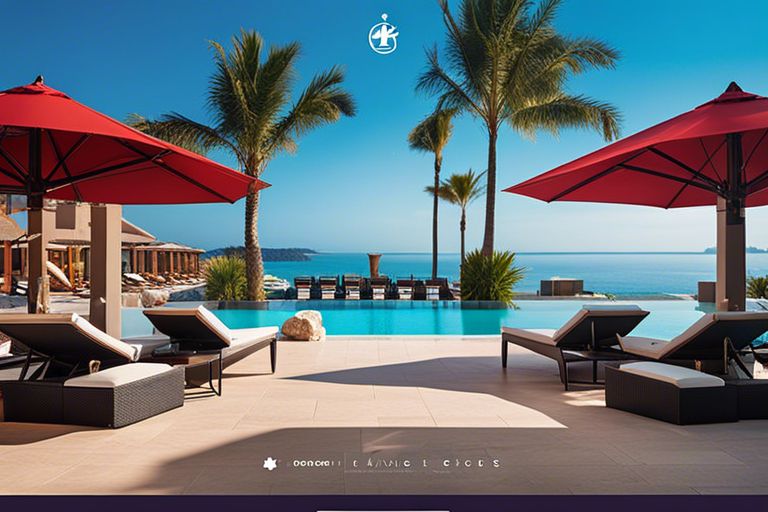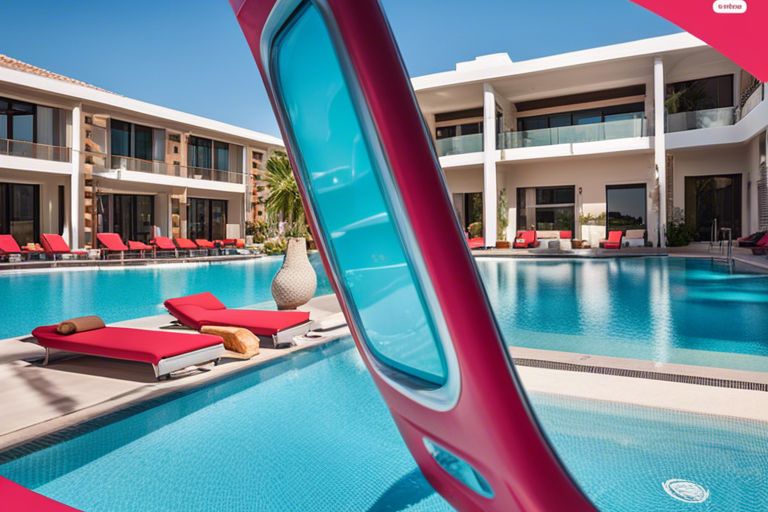Maximizing your hotel’s online presence through strategic social media marketing can be a game-changer when it comes to driving bookings. With the powerful reach and engagement potential of platforms like Facebook, Instagram, and Twitter, you can significantly boost your hotel’s visibility and attract more potential guests. In this comprehensive guide, we will explore the best practices and effective strategies for utilizing social media marketing to generate more bookings for your hotel.
Table of Contents
- 1 Establishing Your Hotel’s Social Media Presence
- 2 Understanding Your Target Audience
- 3 Content Creation: The Heart of Social Media Marketing
- 4 Harnessing the Power of User-Generated Content
- 5 Influencer Collaborations and Partnerships
- 6 Driving Bookings through Paid Social Media Advertising
- 7 Analyzing and Adjusting Your Strategy
- 7.1 Tools and Techniques for Measuring Social Media Success
- 7.2 Interpreting Data to Understand Guest Behavior
- 7.3 Continuous Improvement: Adapting Your Strategy for Better Results
- 7.4 Staying Ahead of Social Media Trends
- 7.5 Encouraging Continuous Learning and Experimentation
- 7.6 Conclusion: The Ongoing Journey of Social Media Excellence in Hospitality
- 8 FAQ
- 8.0.1 Q: Why is social media marketing important for driving bookings for hotels?
- 8.0.2 Q: What are some effective social media platforms for hotel marketing?
- 8.0.3 Q: How can hotels use social media to engage with potential guests?
- 8.0.4 Q: What type of content should hotels post on social media to attract bookings?
- 8.0.5 Q: How can hotels measure the success of their social media marketing efforts?
Key Takeaways:
- Understand Your Target Audience: Identifying your target audience on social media will help you create content that resonates with them and drives bookings for your hotel.
- Engage with Visual Content: Utilize visually appealing images and videos to showcase your hotel’s amenities, rooms, and local attractions to entice potential guests on social media.
- Implement a Strategic Content Calendar: Plan and schedule regular posts, promotions, and campaigns to maintain a consistent presence and keep your audience engaged with your hotel’s offerings.
- Utilize Influencer and User-Generated Content: Partnering with influencers or leveraging user-generated content can build credibility and trust, ultimately driving more bookings for your hotel through social media.
- Track and Analyze Performance: Use social media analytics tools to monitor the performance of your campaigns, posts, and ads to refine your strategy and maximize the impact of your social media marketing efforts on booking conversions.
Establishing Your Hotel’s Social Media Presence
Assuming you’ve decided to ramp up your hotel’s online presence, social media is an essential tool for driving bookings. In fact, studies show that 52% of travelers use social media to plan their travel, and 76% post their vacation photos to social networking sites. To understand and leverage social media correctly, take a look at our blog post on How to Leverage Social Media to Increase Your Hotel Direct Bookings.
Choosing the Right Platforms for Your Property
For many hoteliers, the question isn’t whether to engage in social media, but rather which platforms to use. The most important consideration is to select the channels where your target audience is most active. If your hotel is in a bustling metropolitan area, platforms like Instagram and Twitter may be your best bet. However, if your property is a resort, platforms like Facebook and Pinterest may be more effective in reaching potential guests.
Once you’ve identified the platforms best suited for your hotel, it’s crucial to maintain an active and consistent presence on those platforms. Regularly posting quality content and engaging with your audience will help build trust and credibility with potential guests.
Crafting an Engaging and Authentic Brand Image
Crafting a strong and authentic brand image across social media platforms is vital for attracting and retaining guests. Your hotel’s unique selling points should be conveyed through visually compelling content and engaging captions. Strive to create a cohesive narrative that illustrates the experience guests can expect when staying at your property. Social media offers an excellent opportunity to showcase the personality and unique offerings of your hotel.
Social media users are drawn to authenticity and transparency, so it’s crucial to keep your content genuine and relatable. Implementing user-generated content and leveraging influencer partnerships can further help in portraying an authentic brand image.
Tips for Creating a Cohesive Online Identity Across Platforms
One of the most important aspects of managing various social media platforms for your hotel is to ensure a cohesive online identity across all channels. Use consistent branding elements such as logo, color scheme, and formatting to create a unified look and feel. Maintaining a consistent tone and style in your messaging is also critical for building brand recognition and trust among your audience.
- Consistency in posting frequency and messaging
- Uniform branding elements across platforms
- Providing a seamless guest experience from social media to booking
This will help in enhancing your hotel’s online presence and perceiving your property as a reliable and professional option in the eyes of potential guests.

Understanding Your Target Audience
Keep in mind that social media marketing for your hotel cannot be effective without a deep understanding of your target audience. By understanding the demographics, preferences, and behaviors of your potential guests, you can create a highly impactful social media strategy that drives bookings and increases brand loyalty.
Identifying and Analyzing Your Ideal Guest Persona
Understanding your ideal guest persona is crucial for crafting a successful social media strategy. This involves gathering data on the age, location, income level, travel preferences, and online behaviors of your target audience. By creating detailed guest personas, you can tailor your social media content to resonate with their interests and motivations. Conducting surveys, analyzing booking patterns, and studying social media engagement can help you gain insights into the characteristics of your ideal guests.
How to Use Social Media Insights to Fine-Tune Your Strategy
Persona Having a deep understanding of your audience’s preferences, behaviors, and interests is essential for refining your social media strategy. Social media platforms offer valuable insights and analytics that can provide you with data on the performance of your content, the demographics of your audience, and the types of posts that resonate the most. By utilizing these insights, you can optimize your content strategy, refine your targeting, and allocate resources effectively to maximize the impact of your social media marketing efforts.
Audience, preferences, guest persona, social media insights, social media strategy
Tailoring Content to Meet Your Audience’s Needs
Your social media content should be tailored to meet the specific needs and interests of your target audience. Whether it’s showcasing the stunning views from your hotel, promoting local attractions, or offering exclusive promotions, your content should be aligned with what your ideal guests are looking for. By catering to their needs and desires, you can build a strong connection with your audience and influence their booking decisions. Engaging with your audience through compelling visuals, informative captions, and interactive posts can enhance the overall experience and encourage them to choose your hotel for their next stay.
Needs, target audience, preferences, booking decisions
Content Creation: The Heart of Social Media Marketing
Unlike other marketing strategies, social media marketing for hotels heavily relies on the creation and distribution of valuable content to drive bookings and engagement. To master this art, you need to understand the latest trends and shifts in the industry. For further insights, check out our blog post on 9 Excellent Hotel Social Media Marketing Strategies for 2024.
Strategies for Crafting Compelling and Shareable Content
One of the most crucial strategies for creating shareable content is to understand your audience. Utilize buyer personas to tailor your content to the needs and preferences of your target market. Additionally, embrace storytelling in your content to evoke emotions and create a connection with your audience. Your content should be authentic and relevant to your audience’s interests, making them more likely to engage and share.
Leveraging High-Quality Visuals to Showcase Your Hotel
HighQuality visuals are essential in portraying the unique features and experiences your hotel offers. Stunning images and videos of your property, amenities, and local attractions can capture attention and inspire travel. Your content should aim to highlight the luxury, comfort, and unforgettable experiences guests can expect when staying at your hotel.
Your visual content should be professionally produced and reflect the brand identity of your hotel. Utilize high-quality images, vibrant colors, and captivating visuals to showcase the beauty and authenticity of your property.
Your content should aim to capture the attention of potential guests and ignite a desire to experience the unique offerings of your hotel firsthand. By incorporating relevant keywords and hashtags, you can increase the visibility and reach of your visual content, attracting potential guests and driving bookings.
How-to Guide on Effective Storytelling Techniques
Storytelling is a powerful tool that can bring your hotel’s brand to life and connect emotionally with your audience. Through compelling narratives, you can immerse your audience in the experience, history, and culture of your hotel. Incorporating guest testimonials and personal anecdotes can further humanize your brand and build trust with potential guests.
Crafting a captivating and authentic story can differentiate your hotel from competitors and establish a lasting impression on your audience. By integrating storytelling into your content strategy, you can evoke emotions, create memorable experiences, and ultimately drive bookings for your hotel.
Harnessing the Power of User-Generated Content
Now more than ever, social media is an invaluable tool for hotels to showcase their brand and attract potential guests. One of the most effective ways to utilize social media marketing is by harnessing the power of user-generated content. This type of content, created and shared by guests, can significantly impact a hotel’s online presence and drive bookings.
Encouraging Guests to Share Their Experience
The first step in leveraging user-generated content is to encourage guests to share their experiences at your hotel on social media platforms. You can accomplish this by creating a visually appealing and Instagrammable environment within your hotel, and by providing incentives for guests to share their experiences, such as holding photo contests with prizes for the best posts. Encouraging guests to use branded hashtags and location tags in their posts can help increase visibility and engagement, ultimately driving more bookings.
Repurposing Guest Content With Permission
Content created by your guests can be repurposed across your own social media channels and marketing materials, with their permission. This can include sharing guest photos on your hotel’s Instagram account, or featuring guest stories and testimonials on your website. By obtaining permission to repurpose user-generated content, you can showcase authentic experiences and build trust with potential guests who are researching your hotel online.
Repurposing guest content can also save you time and resources on creating your own content, while providing a more genuine and relatable perspective for your audience.
Building Trust Through Authentic Guest Stories
Content created by your guests provides an authentic and unbiased view of the guest experience at your hotel. By showcasing these authentic guest stories on your social media and marketing materials, you can build trust and credibility with potential guests. People are more likely to book a stay at your hotel when they see real experiences and positive testimonials from previous guests, as it demonstrates the quality and value of your services.
Through authentic guest stories, you can establish a genuine connection with your audience, demonstrating that your hotel is a welcoming and memorable destination for their next getaway.

Influencer Collaborations and Partnerships
Your hotel can greatly benefit from leveraging influencer collaborations and partnerships to drive bookings through social media marketing. By strategically partnering with influential individuals, you can expand your reach, build credibility, and appeal to a wider audience that aligns with your brand values.
Identifying the Right Influencers for Your Brand
The key to a successful influencer collaboration lies in finding the right influencers who resonate with your target audience and share similar values with your brand. Take the time to research and identify influencers who have an engaged following within your niche. Consider factors such as reach, relevance, and resonance to ensure that the influencer’s audience is likely to be interested in what your hotel has to offer.
Any successful influencer partnership begins with establishing a genuine connection between the influencer and your brand. Look for influencers who genuinely enjoy your hotel’s offerings and are authentic advocates for your brand. Collaborating with influencers who have a strong personal brand and align with your hotel’s values can significantly enhance the effectiveness of your marketing efforts. Recognizing the impact of micro-influencers in niche markets can also be advantageous for driving targeted bookings.
Tips for a Successful Influencer Collaboration
Brand authenticity and transparency are crucial when it comes to influencer collaborations. To ensure a successful partnership, clearly communicate your brand’s expectations and goals with the influencer. Establish a mutually beneficial partnership that provides value to both parties and their respective audiences.
- Set clear objectives for the collaboration to align with your marketing goals.
- Provide creative freedom to the influencer while maintaining brand guidelines.
- Collaborate on compelling content that showcases your hotel’s unique offerings.
Recognizing the authenticity and trust that influencers have built with their audience is essential for the success of your partnership. By authentically integrating your hotel into the influencer’s content, you can enhance brand credibility and generate interest among their followers.
Measuring the Impact of Influencer Partnerships
To evaluate the effectiveness of your influencer partnerships, track key performance indicators such as engagement, reach, and referral traffic to your booking platform. Use analytics tools to measure the impact of influencer-generated content and monitor the growth of bookings attributed to the collaboration.
Your hotel can gain valuable insights from customer feedback related to the influencer’s content, allowing you to gauge the perceived value and appeal of your offerings within their audience. By measuring the impact of influencer partnerships, you can optimize future collaborations and tailor your marketing strategies to maximize bookings and revenue.
Driving Bookings through Paid Social Media Advertising
For hotels, social media advertising can be a powerful tool to drive bookings and increase revenue. With the ability to target specific demographics and reach a wider audience, paid social media advertising can significantly impact your hotel’s occupancy rates. Understanding the different types of social media ads, creating ads that convert browsers into bookers, and implementing effective targeting and retargeting strategies are key components to a successful paid social media advertising strategy for your hotel.
Understanding the Different Types of Social Media Ads
Social media platforms offer a variety of advertising options to promote your hotel, including carousel ads, video ads, image ads, story ads, and collection ads. Each type of ad serves a different purpose and can be used to showcase your hotel’s unique selling points, amenities, and special offers. Understanding the strengths and limitations of each ad format is crucial for creating a successful advertising campaign that resonates with your target audience. This information can be effectively presented in a table format:
| Ad Type | Purpose |
|---|---|
| Carousel ads | Showcase multiple images or videos |
| Video ads | Engage with rich visual content |
| Image ads | Highlight a single compelling image |
| Story ads | Create immersive full-screen experiences |
| Collection ads | Promote a variety of products or services |
How-to Create Ads That Convert Browsers into Bookers
Paid social media advertising offers the opportunity to craft impactful ads that capture the attention of potential guests and inspire them to book a stay at your hotel. By leveraging compelling visuals, persuasive copy, and enticing offers, you can create ads that effectively convert browsers into bookers. It’s important to understand the guest’s journey and align your ad content with their specific needs and desires in order to drive direct bookings and maximize revenue.
Types of ads that are proven to convert include user-generated content ads, influencer collaboration ads, and retargeting ads that bring back users who have previously shown interest in your hotel. These ad types can effectively capitalize on social proof, encourage engagement, and prompt direct bookings, leading to a higher return on investment for your advertising efforts.
Targeting and Retargeting Strategies to Maximize ROI
Different targeting and retargeting strategies can be employed to ensure that your paid social media advertising budget is utilized effectively. By leveraging demographic targeting, interest targeting, behavior targeting, and lookalike audience targeting, you can reach potential guests who are most likely to be interested in your hotel and its offerings. Additionally, implementing retargeting strategies such as dynamic ads, custom audience targeting, and pixel-based retargeting can help you reconnect with users who have previously visited your website but did not make a booking.
It’s important to understand that targeting and retargeting strategies go hand in hand, allowing you to maximize your return on investment by reaching the right audience at the right time with the right message. It’s crucial to continuously analyze the performance of your ads and adjust your targeting and retargeting parameters accordingly to ensure optimal results for your hotel.
Analyzing and Adjusting Your Strategy
Despite the best-laid plans, social media strategies for hotels may need tweaking to achieve maximum effectiveness. Regular analysis of your social media marketing efforts is crucial for understanding what works and what doesn’t. For further insights into effective strategies, you can refer to our blog post on 11 Effective Social Media Marketing Strategies for Hotels.
Tools and Techniques for Measuring Social Media Success
The first step in adjusting your social media strategy is to measure its success. This can be done using various tools and techniques to track metrics such as engagement, reach, and conversion rates. The insights gained from this data can help you identify the strengths and weaknesses of your current approach and make informed adjustments to improve performance.
The use of analytics tools and social media monitoring platforms can provide valuable data on audience demographics, preferences, and behavior. By harnessing these insights, you can refine your content and engagement strategies to better resonate with your target audience.
Interpreting Data to Understand Guest Behavior
Interpreting the data collected from social media platforms allows you to gain a deeper understanding of guest behavior. By analyzing trends in engagement, feedback, and online interactions, you can uncover valuable insights into guest preferences, desires, and pain points. This data-driven approach enables you to tailor your social media content and communications to better meet the needs and expectations of your audience.
Data analysis also helps in identifying patterns and trends, which can be used to predict future guest behavior and preferences. By understanding these patterns, hotels can create targeted campaigns and promotions that are more likely to resonate with their audience, leading to increased bookings and brand loyalty.
By using advanced analytics and interpreting the data collected from social media platforms, hotels can gain valuable insights into guest behavior and preferences. This data-driven approach enables them to refine their marketing strategies and create targeted campaigns that resonate with their audience, leading to increased bookings and brand loyalty.
Continuous Improvement: Adapting Your Strategy for Better Results
Measuring the success of your social media strategy is an ongoing process that requires continuous monitoring and adaptation. By staying agile and responsive to changing trends and guest feedback, hotels can iteratively improve their social media marketing efforts to achieve better results. This may involve testing new content formats, refining targeting parameters, or experimenting with different messaging approaches.
To stay ahead in the competitive landscape of social media marketing for hotels, it is essential to continuously evaluate the performance of your strategy and make timely adjustments. By embracing a culture of continuous improvement, hotels can stay relevant and effective in their social media endeavors, driving more bookings and revenue.
Staying Ahead of Social Media Trends
Tools and techniques for staying ahead of social media trends include keeping an eye on emerging platforms, monitoring industry news and updates, and participating in relevant webinars and conferences. By staying informed about the latest trends and best practices in social media marketing, hotels can adapt their strategies to capitalize on new opportunities and reach a wider audience.
Adapting to the evolving landscape of social media is essential for hotels to maintain a competitive edge and engage with their target audience effectively. By staying ahead of trends, hotels can position themselves as industry leaders and drive more bookings through their social media channels.
Encouraging Continuous Learning and Experimentation
Better understanding and executing social media strategies can be achieved through continuous learning and experimentation. With the dynamic nature of social media platforms, it is crucial for hotel marketers to stay abreast of the latest advancements and experiment with new approaches. With the right mix of creativity and data-driven insights, hotels can refine their social media strategies to drive more bookings and revenue.
With a commitment to continuous learning and experimentation, hotels can discover innovative ways to connect with their audience and create compelling experiences that drive bookings and foster guest loyalty. By embracing a culture of experimentation, hotels can uncover new opportunities for growth and success in the competitive landscape of social media marketing.
Conclusion: The Ongoing Journey of Social Media Excellence in Hospitality
Experimentation, adaptation, and continuous improvement are key elements in the ongoing journey of social media excellence in hospitality. By embracing the dynamic nature of social media and leveraging data-driven insights, hotels can refine their strategies to drive more bookings and elevate the guest experience. Social media remains a powerful tool for hotels to connect with their audience and showcase their unique offerings, driving positive engagement and loyalty.
Social media marketing provides hotels with the opportunity to build meaningful relationships with their audience, foster brand loyalty, and drive direct bookings. By prioritizing innovation and staying informed about the latest trends, hotels can position themselves for long-term success in the digital landscape of hospitality marketing.
FAQ
Q: Why is social media marketing important for driving bookings for hotels?
A: Social media marketing allows hotels to reach a large audience, engage with potential guests, showcase the hotel’s unique features, and drive direct bookings through targeted advertising campaigns.
Q: What are some effective social media platforms for hotel marketing?
A: The most effective social media platforms for hotel marketing are Instagram for visual storytelling, Facebook for targeted advertising and engagement, and Twitter for customer service and promotion.
Q: How can hotels use social media to engage with potential guests?
A: Hotels can engage with potential guests by sharing high-quality content such as stunning visuals, behind-the-scenes glimpses, guest testimonials, and special promotions. Responding to comments and messages promptly also enhances guest engagement.
Q: What type of content should hotels post on social media to attract bookings?
A: Hotels should post a variety of content, including high-quality photos and videos of the property, user-generated content, virtual tours, special offers, local attractions, and engaging stories to showcase the hotel and its unique experiences.
Q: How can hotels measure the success of their social media marketing efforts?
A: Hotels can measure the success of their social media marketing efforts by tracking key performance indicators such as website traffic from social media, booking conversions, engagement metrics, and revenue generated from social media campaigns.










